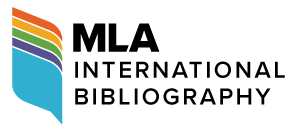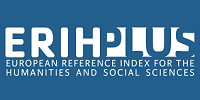The aphorism, a transgressive writing, or the image of women in ‘Seuls comptent pour moi les êtres qui font preuve d’intempérance avec le ciel’ by Abdelmajid Benjelloun
DOI:
https://doi.org/10.7203/HYBRIDA.6.26143Keywords:
A. Benjelloun, thematic/theme analysis, aphorism, transgression, women Abstract
Abstract
A. Benjelloun is a French-speaking Moroccan writer, poet-aphorist and historian, specialist in the history of northern Morocco. He is a founding member of the House of Poetry of Morocco. We are going to study, in the present, the theme of the woman, to hear the representation of the woman, via the aphorisms of this Moroccan poet, in order to detect the semantic and philosophical scope of his thought and the transgressive content of his reflection and of his expression. But, when we speak of a poet-aphorist, the quest for meaning and aesthetics turns out to be an adventure, essentially, interdisciplinary, fruitful and pleasant. We will try to find out what subversive wand this Moroccan aphorist was able to represent or even recreate the image of the woman. Its poetic and philosophical meaning, in addition to its expressive or stylistic art, will be elements to study in order to highlight this means of literary expression that is aphorism and short writing.
 Downloads
Downloads
 References
References
Bélisle, P. (1970). Sur la critique de Jean-Pierre Richard. Liberté, 12(1), 131–139. https://id.erudit.org/iderudit/29724ac
Benjelloun A. (1989). Seuls comptent pour moi les êtres qui font preuve d’intempérance avec le ciel. Imprimerie al-Maarif al Jadida.
Collot, M. (1988). Le thème selon la critique thématique. Communications, (47), 79–91. https://doi.org/10.3406/comm.1988.1707
Estellon, V. (2005). Éloge de la transgression: Transgressions, folies du vivre ? De la marche vers l’envol. Champ psychosomatique, (38), 149–166. https://doi.org/10.3917/cpsy.038.0149
Hirota, D. (2019). La transgression du discours lyrique chez Baudelaire. academia-edu. https://www.academia.edu/1181221/La_transgression_du_discours_lyrique_chez_Baudelaire
Hugueny-Léger, É. (1980). Annie Emaux, une poétique de la transgression (pp. 1–27). Modern French identities, Peter Lang AG, International Academic Publishers. https://books.google.co.ma/books?id=KnyYM11ag6gC&printsec=copyright&redir_esc=y#v=onepage&q&f=true
Rocío Subías, M. (septembre 2018). Transgression, subversion et personnages hors norme dans la nouvelle La sombra de B. Pérez Galdós. La Clé des Langues Lyon. https://cle.ens-lyon.fr/espagnol/litterature/litterature-espagnole/XVIIe-XIXe/transgression-subversion-et-personnages-hors-norme-dans-la-nouvelle-La-sombra-de-B-Perez-Galdos
Cohen, J. (1970). Théorie de la figure. Communications, (16), 3–25. https://doi.org/10.3406/comm.1970.1226
Rafiq, M. (2021). Violence verbale envers la femme marocaine : proverbes injurieux envers la femme marocaine. Faits de langue et société, (7), 83–94. https://revues.imist.ma/index.php/FLS/article/view/30764/15993
Roitman, M. (2006). Polyphonie argumentative : Étude de la négation dans des éditoriaux du Figaro, de Libération et du Monde. [Thèse de Doctorat]. Université de Stockholm. http://www.diva-portal.org/smash/get/diva2:189318/FULLTEXT01.pdf
Takahisa, H. (2014). Vers la forme poétique brève, ou : la Révolution (Michel Leiris). In E. Benoit (dir.) Transmission et transgression des formes poétiques régulières (pp. 167–176). Pessac : Presses Universitaires de Bordeaux. http://books.openedition.org/pub/8858
Wary, J. (2012). De la notion de transgression pour l’étude d’une œuvre moderniste : le cas de l’œuvre d’Elizabeth Bowen. 1ère Journée d’Étude des doctorants du CIRLEP. Université de Reims – Champagne-Ardenne, Centre Interdisciplinaire de Recherches sur les Langues Et la Pensée. https://hal.science/hal-00713514/document
Weber, J-P. (1966). L’analyse thématique : hier, aujourd’hui, demain. Études françaises, 2(1), 29–72. https://doi.org/10.7202/036218ar
Published
How to Cite
-
Abstract243
-
HTML (Français )396
-
PDF (Français )132
Issue
Section
License
![]()
All the documents in the OJS platform are open access and property of their respective authors.
Authors publishing in the journal agree to the following terms:
- Authors keep the rights and guarantee HYBRIDA the right to be the first publication of the document, licensed under a Creative Commons license Attribution-NonCommercial-ShareAlike 4.0 International (CC BY-NC-SA 4.0) that allows others to share the work with an acknowledgement of authorship and publication in the journal.
- Authors are allowed and encouraged to spread their work (once published) through electronic means using personal or institutional websites (institutional open archives, personal websites or professional and academic networks profiles) once the text has been published.
















